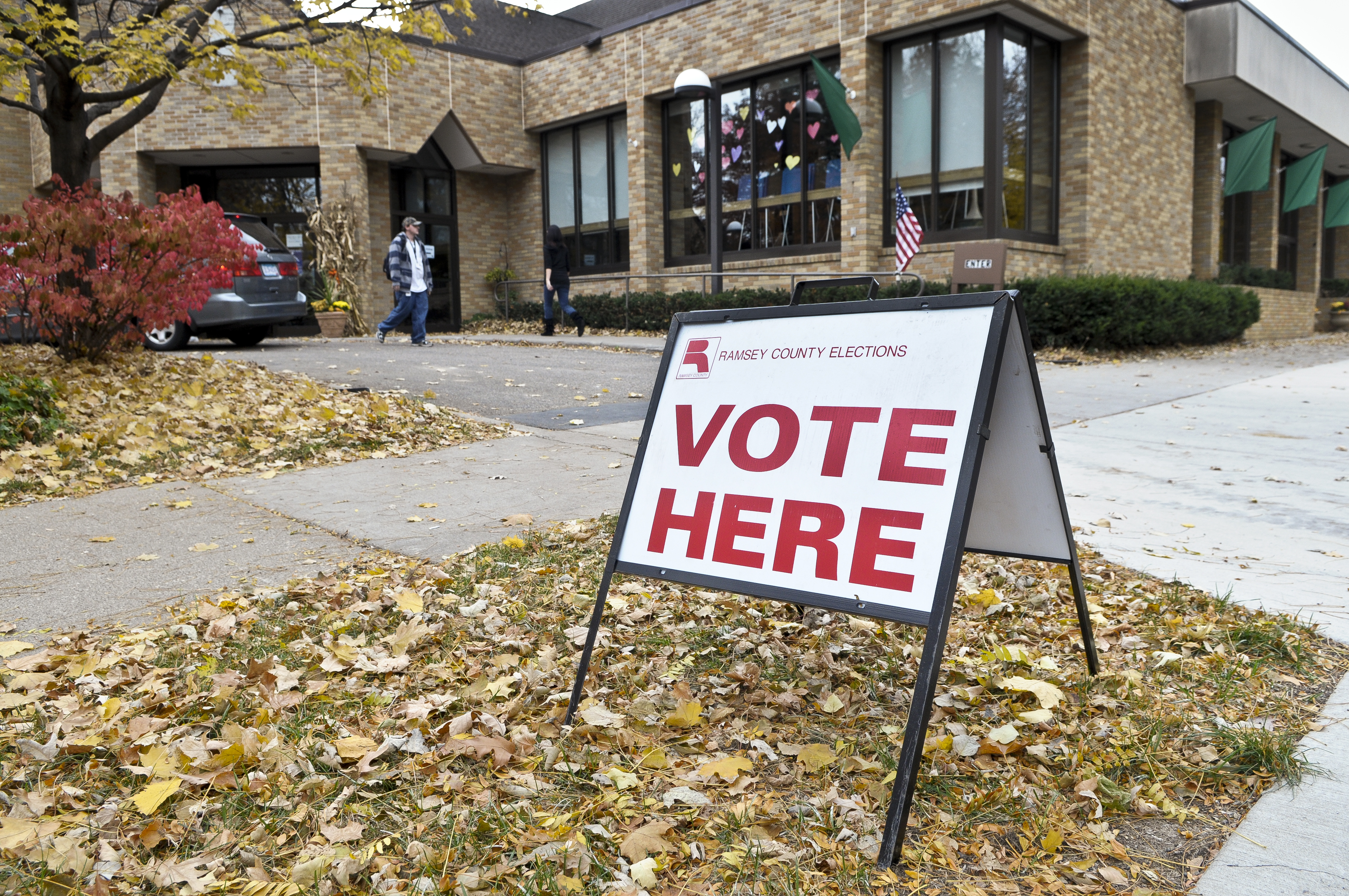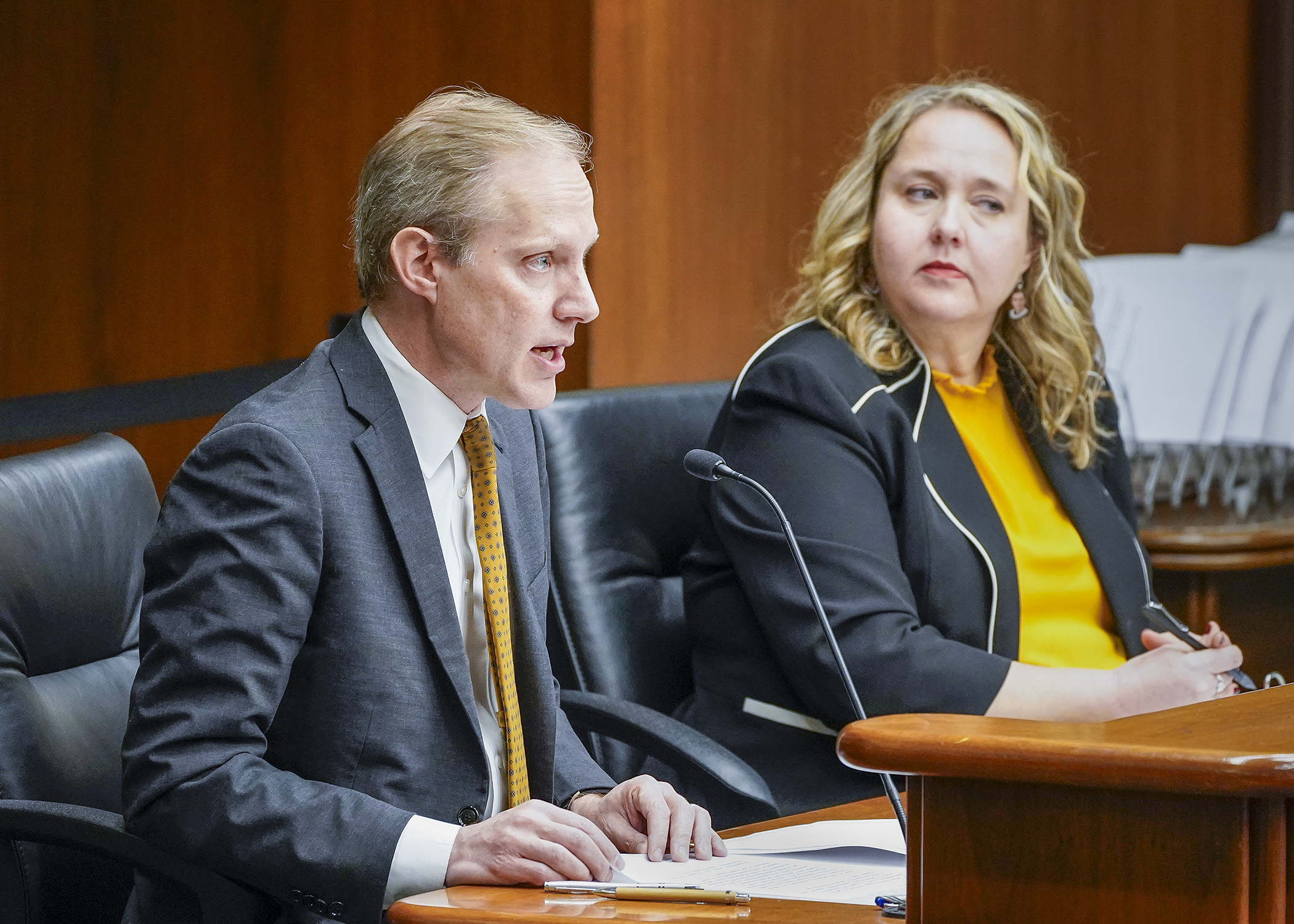‘Minnesota Voting Rights Act’ seeks to guarantee equal opportunity at the ballot box

Minnesota traditionally tops or is near the top of states when it comes to voting turnout.
But a recent federal court ruling could jeopardize the opportunity for everyone who is eligible to cast a ballot.
Thus the need for what Rep. Emma Greenman (DFL-Mpls) is calling the “Minnesota Voting Rights Act” that aims to ensure no one is denied an equal opportunity to vote.
Approved as amended Wednesday by the House Elections Finance and Policy Committee via a split-voice vote, HF3527 next goes to the House Judiciary Finance and Civil Law Committee.
Congress passed the Federal Voting Rights Act in 1965 that, among its provisions, prohibited racial discrimination in voting. However, the Eighth Circuit Court of Appeals ruled in November 2023 that only the United States attorney general can enforce Section 2 that prohibits states from enacting voting standards that would deny or limit any citizen’s right to vote based on their race or color.
“The Minnesota Voting Rights Act will ensure Minnesotans can vindicate these essential protections to combat racial discrimination in voting and strengthen them to respond to the threats faced by voters of color today,” Greenman said. “It improves upon the voting rights act by establishing streamlined and predictable causes and actions that will reduce the need for and the cost of litigation.”
Secretary of State Steve Simon said inaction is not an option.
“We need an insurance policy in Minnesota. If we can no longer count on the Federal Voting Rights Act to allow private citizens to protect their own voting rights, then we need a Minnesota Voting Rights Act to fill that gap. … This guarantees a day in court for Minnesota voters to defend their voting rights against policies they believe discriminate against them.”
Michael Pernick, a voting rights attorney for the NAACP Legal Defense and Educational Fund, said examples of discrimination include insufficient polling places, redistricting plans that “pack” persons of color to weaken their voting strength, and lack of language assistance for voters whose first language is not English.
 Secretary of State Steve Simon testifies before the House elections committee March 6 in support of a bill sponsored by Rep. Emma Greenman, right, that would establish the Minnesota Voting Rights Act. (Photo by Andrew VonBank)
Secretary of State Steve Simon testifies before the House elections committee March 6 in support of a bill sponsored by Rep. Emma Greenman, right, that would establish the Minnesota Voting Rights Act. (Photo by Andrew VonBank)The bill would require someone alleging voter suppression or dilution to first notify the political subdivision, which would then work “in good faith” to remedy a potential violation.
Concern was expressed by Rep. Paul Torkelson (R-Hanska) and Alex Hassel, intergovernmental relations representative for the League of Minnesota Cities, that local governments follow policies created by the Legislature.
“Where should local governments be on the hook for saying, ‘Yes, this is a clear violation of a local government action,’ … and where should we say, ‘No, the state should be the ones actually defending a certain violation?’” added Matt Hilgart, government relations manager at the Association of Minnesota Counties.
The bill would also permit statutory cities within the state to move from at-large to ward-based elections.
An amendment unsuccessfully offered by Rep. Duane Quam (R-Byron) would have required provisional balloting for persons who register at the polling place on Election Day.
Related Articles
Search Session Daily
Advanced Search OptionsPriority Dailies
Speaker Emerita Melissa Hortman, husband killed in attack
By HPIS Staff House Speaker Emerita Melissa Hortman (DFL-Brooklyn Park) and her husband, Mark, were fatally shot in their home early Saturday morning.
Gov. Tim Walz announced the news dur...
House Speaker Emerita Melissa Hortman (DFL-Brooklyn Park) and her husband, Mark, were fatally shot in their home early Saturday morning.
Gov. Tim Walz announced the news dur...
Lawmakers deliver budget bills to governor's desk in one-day special session
By Mike Cook About that talk of needing all 21 hours left in a legislative day to complete a special session?
House members were more than up to the challenge Monday. Beginning at 10 a.m...
About that talk of needing all 21 hours left in a legislative day to complete a special session?
House members were more than up to the challenge Monday. Beginning at 10 a.m...